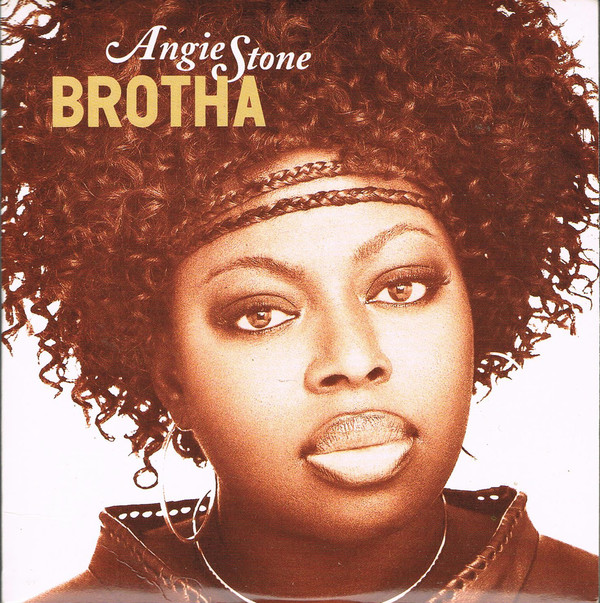
Angie Stone (nee Angela Laverne Brown) was born in 1961 in Columbia, South Carolina. Her father, who was involved in a local gospel quartet, shared his love of gospel music with her, took her to many performances, and inspired her to begin performing gospel when she was young. Although she sang gospel, Stone's first group was a rap group called the Sequence, which she formed with two female friends when she was sixteen. One of their first hits was "Funk You Up," which was recorded for the groundbreaking hip-hop label Sugar Hill. It was later picked up and adapted by other groups and became a hugely popular hit. After the group disbanded, Stone went on to collaborate with many rap and R&B artists.
 |
| Album cover for "Brotha." |
In 1995 she participated in the neo-soul breakout album Brown Sugar, by D'Angelo. Her subsequent albums have been in this genre, a more nuanced and emotionally driven subset of earlier gospel-based soul music. "Brotha" is an example of neo-soul. It is a tribute to African American men, a demographic that was receiving widespread criticism at the time, as prominent figures such as Bill Cosby portrayed them as unsupportive of their families and placed the blame on them for forcing children of color to grow up in single-parent homes. Stone's song contrasts this portrayal by celebrating the Black men in her life as supportive and hardworking family and community members. In performance Stone paired this song with "A Woman's Worth," by Alicia Keys. Together the songs offered positive portrayals of both men and women of color. |


